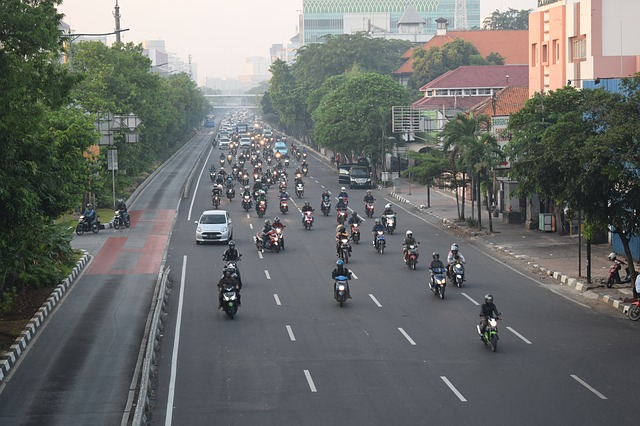The economy of Indonesia contracted for the first time in more than two decades in the second quarter, official data stated on Wednesday, with the government promising faster spending in the next few months to boost growth.
The largest economy of Southeast Asia shrank by a greater than expected 5.32 percent in the April-June period from a year ago, as per the data from Statistics Indonesia, the first contraction since 1999.
That was bigger than the 4.61 percent contraction forecast in a Reuters poll of economists and down sharply from 2.97 percent growth year-on-year in the first quarter. The data showed a broad-based fallout from the coronavirus pandemic and restrictions to contain its spread. Households curbed spending and businesses delayed investments, while exports were hit by lower global demand and commodity prices.
Biggest Contraction of Indonesian Economy Since 1999

"The risk of recession is getting bigger considering the slower economic performance in the second quarter," said Josua Pardede, an economist at Bank Permata, adding that government spending had remained slow. Indonesia has budgeted 695.2 trillion rupiah ($47.88 billion) worth of stimulus for 2020 to protect the economy from the fallout of the outbreak including subsidized loans for small businesses and cash assistance for low-income families.
But the data showed government spending falling 6.9 percent annually in the second quarter even as the central bank has provided ample monetary stimulus in recent months. Airlangga Hartarto, Coordinating Minister of Economic Affairs, told a news conference the government would accelerate spending in the third quarter, without giving details.
"We need to spend a minimum 800 trillion rupiah each quarter" to get the economy growing again, Hartarto said. Wisnu Wardana, an analyst at Bank Danamon, also said further economic stimulus should come from the government given that "monetary policy has been stretched". Indonesia's central bank has cut its key interest rates four times this year by a total of 100 basis points to the lowest since at least 2016 when it adopted the rate as its benchmark.
Bank Indonesia and the government also unveiled earlier this month a $40 billion debt monetization scheme, with the central bank pledging to buy $28 billion of bonds while relinquishing interest payments. The economy also shrank 4.19 percent quarter-on-quarter in the April-June period, on a non-seasonally adjusted basis, after a 2.41 percent contraction in the first quarter.
Household consumption, which makes up around half of the country's GDP, fell by 5.5 percent in the second quarter compared to last year, while investment was down 8.61 percent. Export and imports were down 11.7 percent and 16.9 percent respectively over that period. Indonesia started easing social restrictions in parts of the country in June, but the number of coronavirus cases accelerated in July, raising concerns about fresh restrictions.
(With agency inputs)








